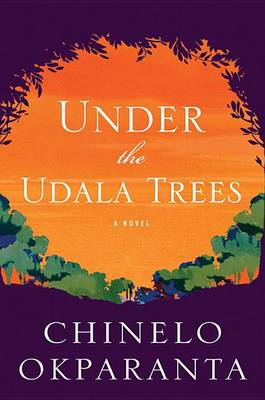Reviewed by brokentune on
I read Under the Undala Tree for the 12 Tasks of the Festive Season. If it had not been for that purpose, I would have DNF'd this book without any regret or hesitation.
In fact, the only aspect I liked about the book was that it was the first and so far only book I have read that was set during the Biafran War and that provided some insight into Nigerian history and culture.
Nevertheless, the book was pretty horrible,
It was not the description of war and cruelty against people that was off-putting as much as the description of many of the adult characters as rather two-dimensional, unfeeling, stupid, bigoted asshats, and of the two main characters as so overly precocious it made me think of at least two ways in which the story could have been delivered without inducing repetitive eye-roll injuries. Then, of course, I got frustrated because I should not have to think of ways in which the story could be delivered.....
The descriptions of Nigeria and its people during the civil war were gripping. It was difficult reading about the hardship and the violence, but it did provide a realistic picture of a post-colonial civil war setting. But then, pretty much out of nowhere the book took a turn into the romance genre - except that, you know, the relevant characters were about 12 years old.....
The idea of 12 year old girls discussing issues of marriage, and the impossibility of their marriage in 1970s Nigeria and the differences in their religions and backgrounds and whatnot is one thing, but the two 12 year old characters actually engaging in a sexual relationship???
Erm, ...
I do see why the book has been getting a lot of attention because it does give a voice to LGBT issues in Nigeria, and it is one of the few books that I have seen that also takes up other issues such as religious fundamentalism, tribal prejudice, the roles of men and women in society, etc. in an African setting. However, I just cannot see beyond the fundamental flaw that one of the hooks in this book is that it seems to want to deny the two child characters what is left of their childhood after the war time experiences, the hatred towards them because of their gender, tribal background, religious views, and whatnot by supposing that a same-sex relationship is what is on the minds of two 12-year-olds.
So, as I said, I get why this is an important book: It perfectly describes the horrible situations people find themselves in in places that do not tolerate "otherness". It holds up a mirror to the ugly face of societies that actively promote hate and the criminalisation of homosexuality and promote correctional rape, religious conversion, etc. It supposedly tells people trapped in a similar situation that they are not alone, and that they have a voice in the form of this book.
I appreciate all of these intentions.
And yet, to this reader these intentions are not what memories of Under the Undala Trees will evoke in this particular reader. To paraphrase the line I quote from the book, there’s nothing more important now than for me to find some brain bleach.
Reading updates
- Started reading
- 22 December, 2016: Finished reading
- 22 December, 2016: Reviewed
